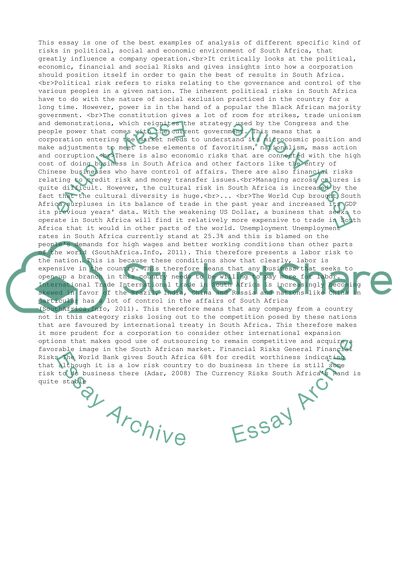Cite this document
(“Analysis of Strategic Risks in South Africa Essay”, n.d.)
Retrieved from https://studentshare.org/business/1423524-analysis-of-strategic-risks-in-south-africa
Retrieved from https://studentshare.org/business/1423524-analysis-of-strategic-risks-in-south-africa
(Analysis of Strategic Risks in South Africa Essay)
https://studentshare.org/business/1423524-analysis-of-strategic-risks-in-south-africa.
https://studentshare.org/business/1423524-analysis-of-strategic-risks-in-south-africa.
“Analysis of Strategic Risks in South Africa Essay”, n.d. https://studentshare.org/business/1423524-analysis-of-strategic-risks-in-south-africa.


